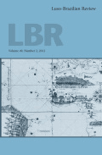
Luso-Brazilian Review
Scope & Guideline
Navigating the Intricacies of Lusophone History and Culture
Introduction
Aims and Scopes
- Interdisciplinary Studies:
The journal embraces a wide range of disciplines, including literature, history, sociology, and cultural studies, encouraging a multifaceted approach to Luso-Brazilian topics. - Cultural Identity and Race:
A consistent focus is placed on the exploration of cultural identity, particularly relating to race and ethnicity in Brazil and Portugal, reflecting on historical contexts and contemporary issues. - Gender and Intersectionality:
The journal emphasizes the intersection of gender with other social categories, exploring how these intersections shape experiences and narratives within Luso-Brazilian contexts. - Post-Colonial and Diaspora Studies:
Research often delves into post-colonial themes and the experiences of the diaspora, highlighting the complexities of cultural exchange and identity formation in a globalized world. - Literary and Artistic Analysis:
The review includes critical analyses of literary and artistic works, showcasing how these mediums reflect and challenge societal norms and historical narratives.
Trending and Emerging
- Afro-Brazilian Studies:
There is an increasing emphasis on Afro-Brazilian narratives, exploring themes of identity, representation, and the legacy of slavery, which resonate with broader global discussions on race and social justice. - Environmental and Geopolitical Issues:
Recent papers have begun to address the intersections of environmental concerns with geopolitical dynamics, particularly in the context of Brazil's development and its impact on indigenous and marginalized communities. - Contemporary Political Discourse:
The journal is reflecting a growing interest in contemporary political issues, including analyses of recent political regimes, authoritarianism, and their cultural implications, indicating a responsiveness to current events. - Intersectional Feminism:
Themes surrounding intersectional feminism are increasingly prevalent, examining how multiple identities intersect and impact experiences of oppression and resistance among women in Luso-Brazilian contexts. - Digital and Media Studies:
Emerging research is also focusing on the role of digital media and technology in shaping cultural narratives and identities, highlighting how these platforms contribute to contemporary Luso-Brazilian discourse.
Declining or Waning
- Traditional Colonial Narratives:
Research centered on traditional colonial narratives and histories has seen a decline, as the journal shifts towards more contemporary issues and post-colonial critiques. - Purely Historical Accounts:
There is a noticeable decrease in publications that focus solely on historical accounts without connecting them to contemporary cultural or social issues, reflecting a trend towards interdisciplinary approaches. - Homogeneous Cultural Representations:
The journal has moved away from simplistic or homogeneous representations of culture, focusing instead on the complexities and diversities within Luso-Brazilian identities.
Similar Journals

Veredas-Revista da Associacao Internacional de Lusitanistas
Exploring the Depths of Lusitanian CultureVeredas - Revista da Associação Internacional de Lusitanistas is a prominent open-access academic journal published by the Associação Internacional de Lusitanistas in Portugal, focusing on critical discussions in the fields of Communication, Linguistics, Literature, and Visual Arts. Since its inception in 1998, Veredas has provided a platform for scholars to explore and share innovative research, enhancing the understanding of Lusitanian cultures and its interdisciplinary connections. Despite its recent Scopus rankings reflecting a lower quartile performance in various categories, the journal continues to foster scholarly dialogue and encourage contributions that address contemporary issues in these fields. The journal is accessible to all, ensuring that valuable insights reach a wide audience, which is essential for advancing knowledge and education in Lusitanian studies. As it converges into an evolving research landscape, Veredas remains a pivotal resource for researchers, professionals, and students invested in the richness of language, literature, and arts.
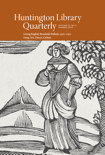
HUNTINGTON LIBRARY QUARTERLY
Connecting Ideas Across Time and Mediums in the HumanitiesThe Huntington Library Quarterly, published by University of Pennsylvania Press, is a distinguished academic journal that has been enriching the fields of History, Literature, and Visual Arts since its inception in 1964. With an ISSN of 0018-7895 and E-ISSN 1544-399X, this journal operates from the cultural and scholarly hub of the United States, specifically from Philadelphia, PA. Although unlisted as an Open Access journal, it maintains a robust academic presence with its Q3 ranking in key categories such as History, Literature and Literary Theory, and Visual Arts and Performing Arts for the year 2023. The journal curates a range of scholarly articles that explore the rich interdisciplinary connections among these fields, making it an invaluable resource for researchers, professionals, and students alike who seek to deepen their understanding of cultural and historical contexts. With a strong Scopus ranking, situated within the 52nd to 69th percentiles across its related categories, The Huntington Library Quarterly continuously aims to challenge conventions and inspire innovative discourse in the humanities.

IDENTITIES-GLOBAL STUDIES IN CULTURE AND POWER
Unraveling Global Identities Through Critical InquiryIDENTITIES: Global Studies in Culture and Power, published by Taylor & Francis Inc, is a distinguished academic journal dedicated to the exploration of cultural identities within a global context. With its ISSN 1070-289X and E-ISSN 1547-3384, this journal has established itself as a key platform for scholars interested in the intersections of culture, power, and identity since its inception in 1994. As a premier Q1 journal in the fields of Anthropology, Arts and Humanities, and Cultural Studies, it ranks highly among its peers, holding notable positions such as #69 in Social Sciences – Cultural Studies and #45 in Social Sciences – Anthropology, reflecting its influence and relevance in contemporary academic discourse. While the journal operates under a subscription model, it remains committed to presenting high-quality, peer-reviewed research that contributes to our understanding of global identities. Its critical analyses and theoretical advancements make it an invaluable resource for researchers, professionals, and students who aim to delve into the complexities of culture and power dynamics in today's world.

Kritika Kultura
Unveiling innovative scholarship in cultural studies and criticism.Kritika Kultura is an esteemed journal published by Ateneo de Manila University, dedicated to advancing the fields of cultural studies, literary criticism, and post-colonial theory. With its ISSN 2094-6937, this journal serves as a vital platform for scholars and practitioners interested in interdisciplinary research that analyzes the complexities of culture and literature within various socio-political contexts in the Philippines and beyond. Although currently not operating under an open-access model, Kritika Kultura is committed to fostering academic dialogue and disseminating significant research findings, making it an essential resource for researchers, professionals, and students alike. By showcasing innovative approaches and scholarly discourse, the journal contributes to the rich tapestry of Filipino and global academic thought, reinforcing its importance in contemporary scholarship.
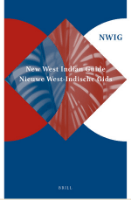
NWIG-New West Indian Guide-Nieuwe West-Indische Gids
Advancing Scholarship on Caribbean Histories and Cultures.NWIG-New West Indian Guide-Nieuwe West-Indische Gids is a prestigious academic journal published by KITLV PRESS in the Netherlands, dedicated to advancing knowledge in the realms of history, cultural studies, and social sciences. Established in 1977, the journal has consistently provided a platform for scholarly discourse, focusing on the Caribbean and its multifaceted histories, cultures, and societies. With an Open Access model adopted since 2013, it ensures widespread dissemination of critical research that appeals to a diverse academic audience. In 2023, the journal has been recognized with notable quartiles, ranking in Q2 for both cultural studies and history, underscoring its significance in the field. Researchers and students alike can benefit from its vast collection of articles exploring important themes relevant to the Caribbean context and beyond, fostering a deeper understanding of the region's impact on global narratives. For a comprehensive and enriching scholarly experience, NWIG invites submissions that push the boundaries of current knowledge and encourage interdisciplinary engagement.
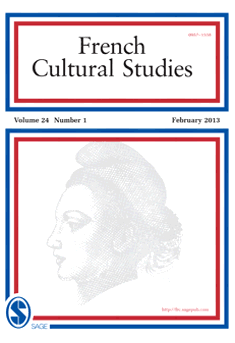
French Cultural Studies
Exploring the Depths of French Culture and SocietyFrench Cultural Studies, published by SAGE Publications Inc, is a leading journal in the domains of Cultural Studies and History. With its ISSN 0957-1558 and E-ISSN 1740-2352, this esteemed journal has made significant contributions to the understanding of French culture, literature, and society since its inception in 1990. Notably ranked in the Q2 category for Cultural Studies and Q1 category for History in 2023, it stands out with impressive Scopus rankings, placing 447th in History and 482nd in Cultural Studies. The journal aims to facilitate a nuanced discourse around French cultural phenomena, offering researchers, professionals, and students a platform for high-quality scholarly work. Although it does not operate under an Open Access model, its rigorous peer-review process ensures the publication of impactful articles that advance academic inquiry and foster collaborative dialogue in the field. Adhering to the mission of promoting interdisciplinary research, French Cultural Studies is a vital resource for anyone interested in exploring the complexities of French cultural identity and its global implications.
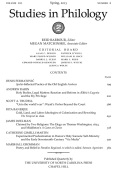
STUDIES IN PHILOLOGY
Exploring the Depths of Linguistic and Literary InquiryStudies in Philology is a distinguished peer-reviewed journal published by University of North Carolina Press, focusing on the fields of linguistics, literature, and literary theory. Established in 1972, the journal has consistently contributed to the scholarly discourse in its domains, showcasing a rich repository of research that meets the evolving needs of academic inquiry. With an ISSN of 0039-3738 and an E-ISSN of 1543-0383, it provides a platform for innovative studies that enhance understanding and foster critical engagement with texts and language. The journal is currently placed in the Q4 tier within linguistics and language and Q2 in literature and literary theory, reflecting its diverse and significant contributions to the arts and humanities. Although not an open-access journal, it continues to attract submissions from globally recognized scholars, making it a valuable resource for researchers, professionals, and students seeking to deepen their expertise and advance their studies. For more than four decades, Studies in Philology has played an integral role in fostering scholarly communication, and it remains committed to publishing pioneering articles that challenge conventional thinking and broaden the horizons of philological exploration.
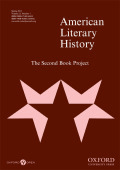
AMERICAN LITERARY HISTORY
Charting the Evolution of American Literary ThoughtAMERICAN LITERARY HISTORY, published by Oxford University Press Inc, is a leading peer-reviewed journal dedicated to advancing the understanding of American literature within the broader contexts of cultural studies and history. With an impressive impact factor reflecting its Q1 ranking in Cultural Studies, History, and Literature and Literary Theory, this journal serves as an essential resource for researchers, professionals, and students alike. Covering a wide range of topics, it seeks to illuminate the historical and cultural dynamics that shape literary production in the United States from 1989 to 2024. Although not an open access journal, AMERICAN LITERARY HISTORY remains a pivotal platform for scholarly discourse, encouraging rigorous scholarship and critical engagement with literary texts. The journal's strong Scopus rankings further emphasize its significance, ranked among the top journals in its field, making it an indispensable tool for anyone seeking to explore the rich tapestry of American literary heritage.

Limite-Revista de Estudios Portugueses y de la Lusofonia
Innovating Perspectives on the Lusophone ExperienceLimite-Revista de Estudios Portugueses y de la Lusofonia, published by the Universidad de Extremadura, Facultad de Filosofía y Letras, is a prominent academic journal dedicated to the study of Portuguese and Lusophone literature, culture, and linguistics. With an ISSN of 1888-4067 and an E-ISSN of 2253-7929, this journal serves as a vital platform for researchers, scholars, and students interested in the rich tapestry of Portuguese-speaking countries and their contributions to global culture. With a strong commitment to fostering interdisciplinary dialogue, Limite aims to publish innovative research that examines historical contexts, contemporary issues, and social dynamics within the Lusophone world. The journal upholds high academic standards and is indexed in various databases, enhancing its visibility and impact within the scholarly community. While currently not providing open access, Limite continues to be a key resource for anyone seeking to explore and deepen their understanding of Portuguese studies, making it an indispensable addition to academic libraries and personal collections alike.
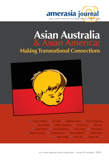
AMERASIA JOURNAL
Advancing Interdisciplinary Dialogues in Cultural StudiesAMERASIA JOURNAL, published by Taylor & Francis Inc, serves as a vital platform for interdisciplinary discourse in the fields of Cultural Studies and History. With an ISSN of 0044-7471, this esteemed journal has established a presence since its inception in 1971, reflecting on the dynamic interplay of cultural narratives and historical contexts, particularly in the Asian American experience. Despite operating under a non-open access model, the journal boasts significant academic rigor, positioned within the Q3 quartile of its categories according to 2023 metrics. Aimed at researchers, professionals, and students engaged in exploring cultural dynamics, social history, and identity formation, AMERASIA JOURNAL features scholarly articles that respond to contemporary issues while informing both academic and public discourse. With its multidisciplinary focus and robust impact, it remains a noteworthy resource for those looking to enrich their understanding of the complex narratives that shape our world today.